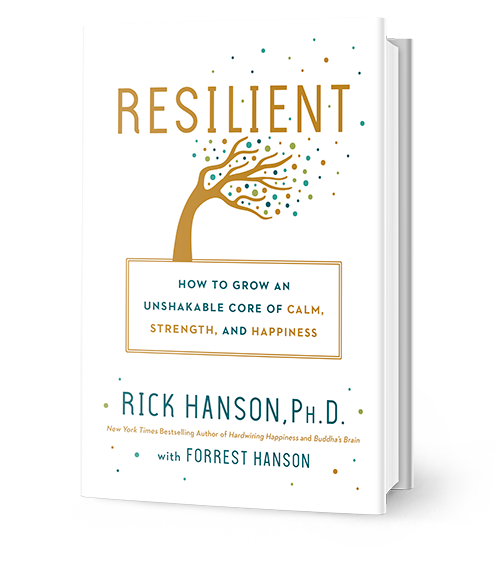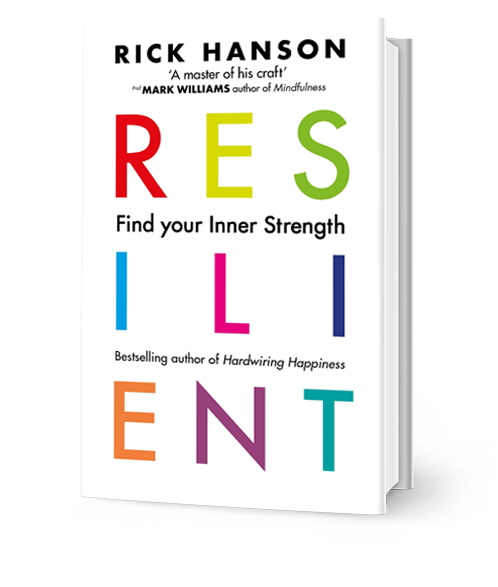06 Mar Three Reasons to Be For Yourself
Compassion for yourself is fundamental, since if you don’t care how you feel and want to do something about it, it’s hard to make an effort to become happier and more resilient.
My new book Resilient focuses on growing 12 essential inner-strengths for lasting well-being in a changing world, and Compassion is one of them.
In the excerpt below, you’ll learn the importance of growing compassion for yourself.
When we treat others with respect and caring, the best in them usually comes out.
Much the same would happen if we could treat ourselves the same way.
Yet most of us are a better friend to others than we are to ourselves. We care about their pain, see positive qualities in them, and treat them fairly and kindly. But what kind of friend are you to yourself? Many people are tough on themselves, critical, second-guessing and self-doubting, tearing down rather than building up.
Imagine treating yourself like you would a friend. You’d be encouraging, warm, and sympathetic, and you’d help yourself heal and grow. Think about what a typical day would be like if you were on your own side. What would it feel like to appreciate your good intentions and good heart, and be less self-critical?
Why It’s Good to Be Good to Yourself
It helps to understand the reasons why it’s both fair and important to be on your own side. Otherwise, beliefs like these can take over: “It’s selfish to think about what you want.” “You don’t deserve love.” “Deep down you’re bad.” “You’ll fail if you dream bigger dreams.”
First, there’s the general principle that we should treat people with decency and compassion. Well, “people” includes the person who wears your nametag. The Golden Rule is a two-way street: we should do unto ourselves as we do unto others.
Second, the more influence we have over someone, the more responsibility we have to treat them well. For example, surgeons have great power over their patients, so they have a great duty to be careful when they operate on them. Who’s the one person you can affect the most? It’s yourself, both you in this moment and your future self: the person you will be in the next minute, week, or year. If you think of yourself as someone to whom you have a duty of care and kindness, what might change in how you talk to yourself, and in how you go about your day?
Third, being good to yourself is good for others. When people increase their own well-being, they usually become more patient, cooperative, and caring in their relationships.
Think about how it would benefit others if you felt less stressed, worried, or irritated, and more peaceful, contented, and loving.
You can take practical steps to help yourself really believe that it’s good to treat yourself with respect and compassion. You could write down simple statements – such as “I am on my own side” or “I’m taking a stand for myself” or “I matter, too” – and read them aloud to yourself or put them somewhere you’ll see each day. You could imagine telling someone why you are going to take better care of your own needs. Or imagine a friend, a mentor, or even your fairy godmother telling you to be on your own side – and let them talk you into it!
Resilient: How to Grow an Unshakable Core of Calm, Strength, and Happiness is now available. Get your copy today!




